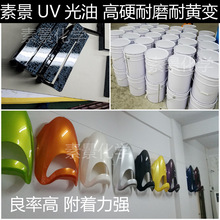
Sacks of rice prepared by the South Korean government to send to flood victims in North Korea are loaded at the Port of Gunsan in North Jeolla Province in this 2010 file photo. Yonhap
By Jung Da-min
Providing any sanctions relief to North Korea is often linked with the progress of denuclearization dialogue between Washington and Pyongyang. But sanctions should not hamper humanitarian aid focused relief assistance.
Recent findings by a report titled "The Human Costs of U.N. Sanctions and Funding Shortfalls for Humanitarian Aid in North Korea," published by the Washington-based think tank 38 North on Aug. 22, has revealed preventable deaths attributable to delays and funding shortfalls have been estimated to be 3,968 in the single year of 2018, with 223 deaths out of them were due to delays in the U.N.'s exemption process for humanitarian aid items. It said the numbers represented minimum with the limited data available.
The report pointed out that funding shortfalls led to reductions in the U.N. programming causing 87 percent of total preventable deaths. But it said many countries have ignored the U.N. funding request for $111 million (about 134.6 billion won) for North Korea 2018 and only $27.2 million (24.4 percent) was raised.
As the report notes, U.N. member states' low participation in the fundraising is due to political considerations.
One of such cases was the U.S.-led Global Fund to Fight AIDS, TB and Malaria (GFATM)'s withdrawal from North Korea as of June 30, which cited "a lack of assurance and risk management for the deployment of resources in the country."
With the withdrawal of the GFATM which began providing regular TB assistance in 2008, the supply of its TB medications in North Korea is expected to run out at the end of this year, turning the already tenuous medical situation for TB patients into a crisis.
Good news is that despite heightened political tensions between Washington and Pyongyang, amid North Korea's series of weapons test conducted for the past months, the GFATM announced on Aug. 27 at a symposium it hosted in Seoul that it is discussing the resumption of its humanitarian aid with Pyongyang.
The announcement came after doctors who have been on the frontline of humanitarian aid to the North have repeatedly appealed to the media and public to stress the necessity of humanitarian aid. The decision is expected to be made in September, according to Dr. Eliud Wandwalo, senior disease coordinator for TB at the GFATM.
But unfortunately, the reality is that the resumption of the GFATM's aid, even if it was to be realized, would simply not be enough to cover the need of the vulnerable population in North Korea.
Indeed, when thousands of people are dying due to the sanctions and resultant delays and shortfalls of humanitarian aid, political consideration should not be taken into account.
"As much as possible, the U.N. should address these needs with core funds, without allowing the desperation of ordinary people to become a political tool," the 38 North report said. "The future success of the U.N.'s humanitarian mission will depend on how much the U.N.'s own system can protect itself from members who choose to use the organization to further their own interests."
顶: 557踩: 33366





评论专区